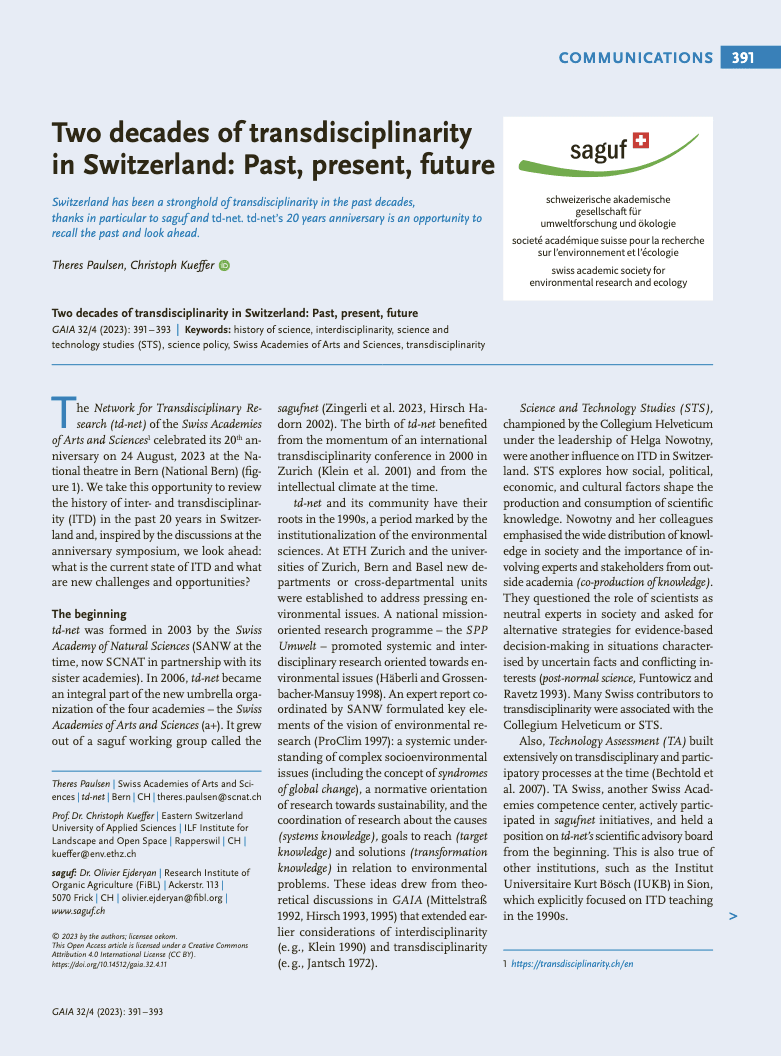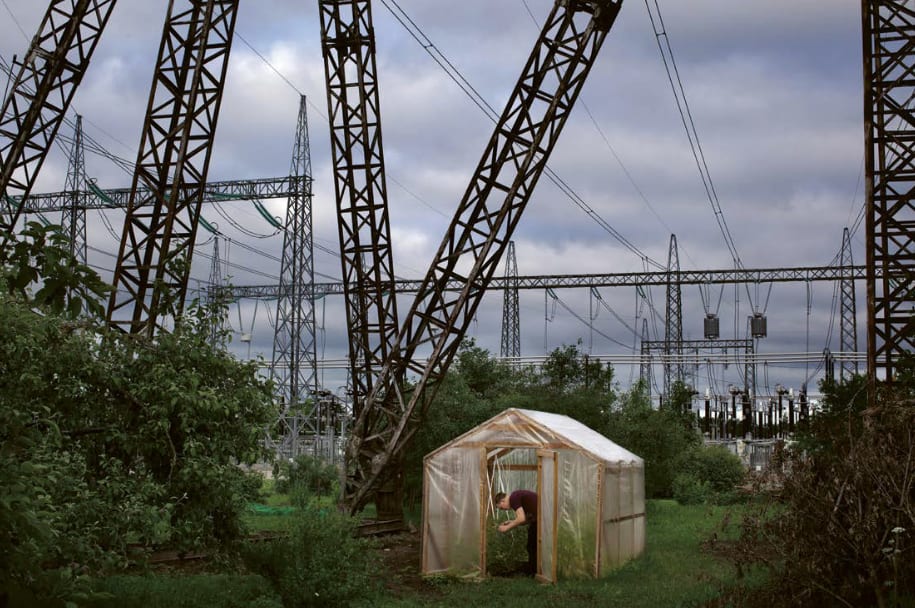Edward Elgar Publishing
Transdisciplinarity in higher education: the potential of digitalization
Paulsen, T, Zinsstag, J, Crump L
The complexity and urgency of societal challenges are growing steadily, as the world currently experiences with managing the coronavirus pandemic. Transdisciplinary research approaches are necessary to confront these complex problems and relevant research capacity is increasingly in demand by society, politics and research funders. However, education and training continuously lag behind societal needs.

© Bildquelle: Edward Elgar Publishing



